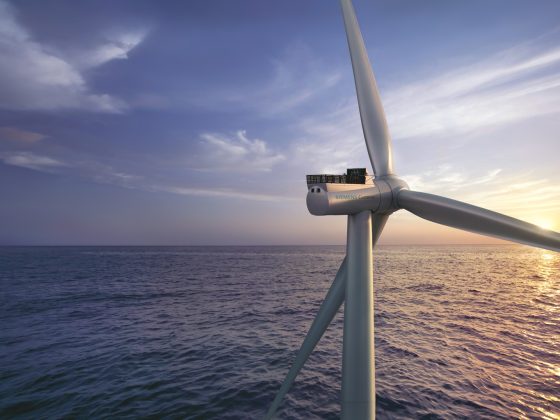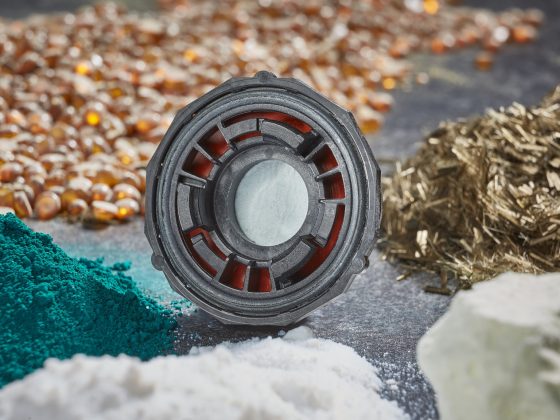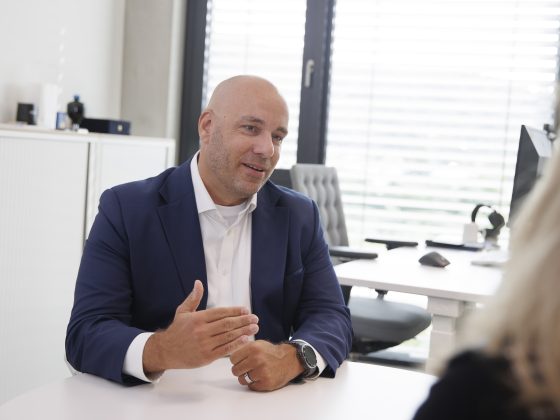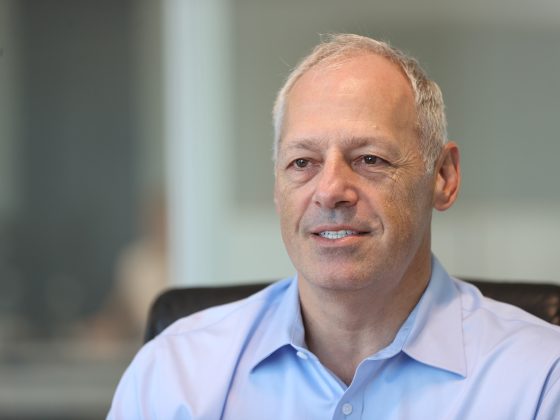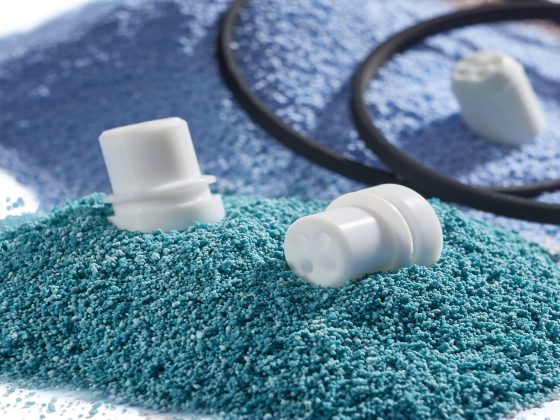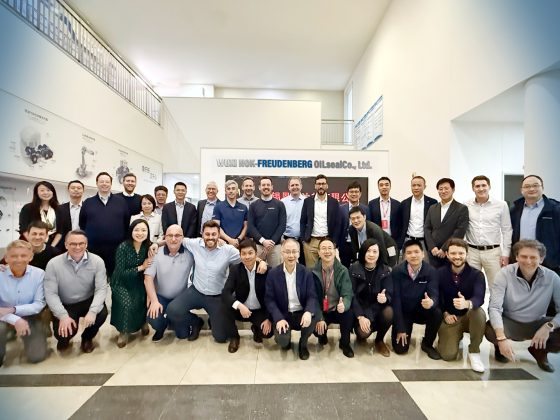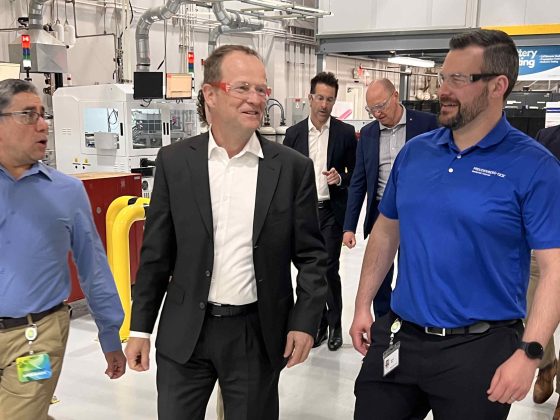An interview with Dr. Matthias Sckuhr, Chief Executive Officer (CEO) of Freudenberg Sealing Technologies (FST) since January 1, 2025.
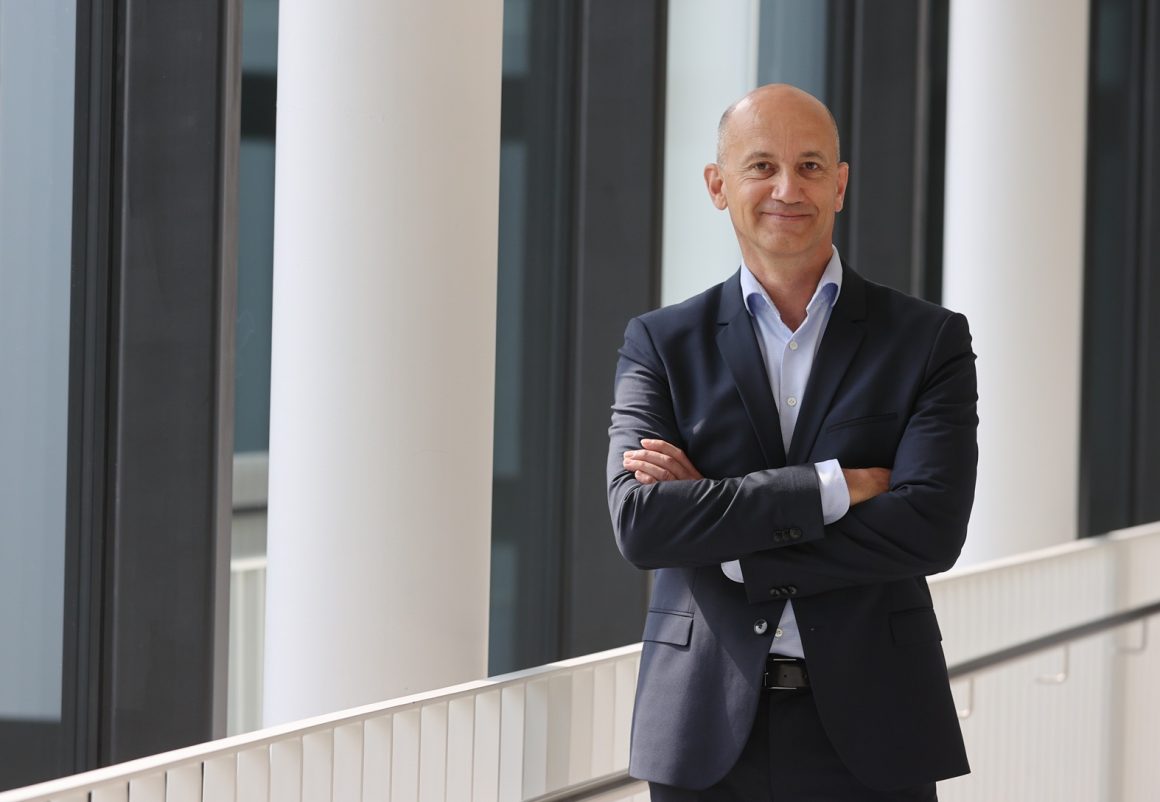

In Brief
Economic Outlook: Dr. Matthias Sckuhr considers FST’s economic prospects to be solid, with plans to strengthen their presence in China and India, and growth opportunities in the U.S., especially in general industry.
Investment in Innovations: FST is investing significantly in automation and efficiency projects, including autonomous mobile robots (AMR), automated visual controls (AVC), and AutoStore systems. Besides, a new raw mixing plant will be built in Weinheim.
Resilience and Adaptability: FST’s resilience is attributed to their employees, financial stability, and broad market positioning. The company emphasizes adaptability and proactive preparation for future developments.
Global Strategy: FST maintains a “local for local” approach. Besides manufacturing, they will also be developing products in the regions where their customers are located. This strategy helps them respond quickly to regional requirements and customer needs.
Dr. Sckuhr, how would you currently assess the economic outlook for FST and its target markets?
I consider our economic prospects to be solid. We will strengthen our presence in China and India. We manufacture for local customers in those countries and those, in turn, are gaining a foothold in Europe. There we will serve them from our European sites. We also see growth opportunities in the U.S., especially in general industry. In my view, FST continues to be well-positioned and well-prepared for the future.
How is the company planning to invest in innovations beyond the already initiated incubators?
I would like to expand a bit on the questions about investments, as they might suggest that we’re only investing in entirely new products, such as the incubators. Over the past few years, we have directed large amounts – specifically, around a third of our entire investment volume – into automation and efficiency projects. We have been particularly focused on autonomous mobile robots (AMR) and automated visual controls (AVC). AutoStore systems, which optimize the use of warehouse space, are another area of current and future investment at both Corteco and ISD. We have also allocated a substantial budget for constructing a new raw mixing plant in Weinheim.
The implementation of the Ovid Project is part of our strategic goals for the current planning period. What’s our status in mid-2025?
We are making very good progress. The Ovid Project was both the starting signal and guideline for how FST intends to achieve the shift towards electromobility and new drive technologies. We have already implemented a great deal. We thoroughly analyzed both our current and potential product portfolios and segmented our existing business appropriately. Our “cash cows” – products that generate solid revenue without major investments – are performing well. These core sales drivers are particularly important during the current transformation phase, as we first have to position and distinguish ourselves on the market with new components and modules.
The incubators are progressing very well, even if things are moving a bit slower than originally planned. This has more to do with the generally slower pace of the transformation, so we are very pleased. In addition, the targets we have set with Ovid run through 2035 and our progress is well on schedule. We aim to increase our revenue to around €3.8 billion by then. We just received an order in Italy to supply cell caps for batteries, which is one of our incubators. This is extremely gratifying for us, as we see strong potential in cell caps in particular. We held our own against Chinese competitors and were awarded the contract.
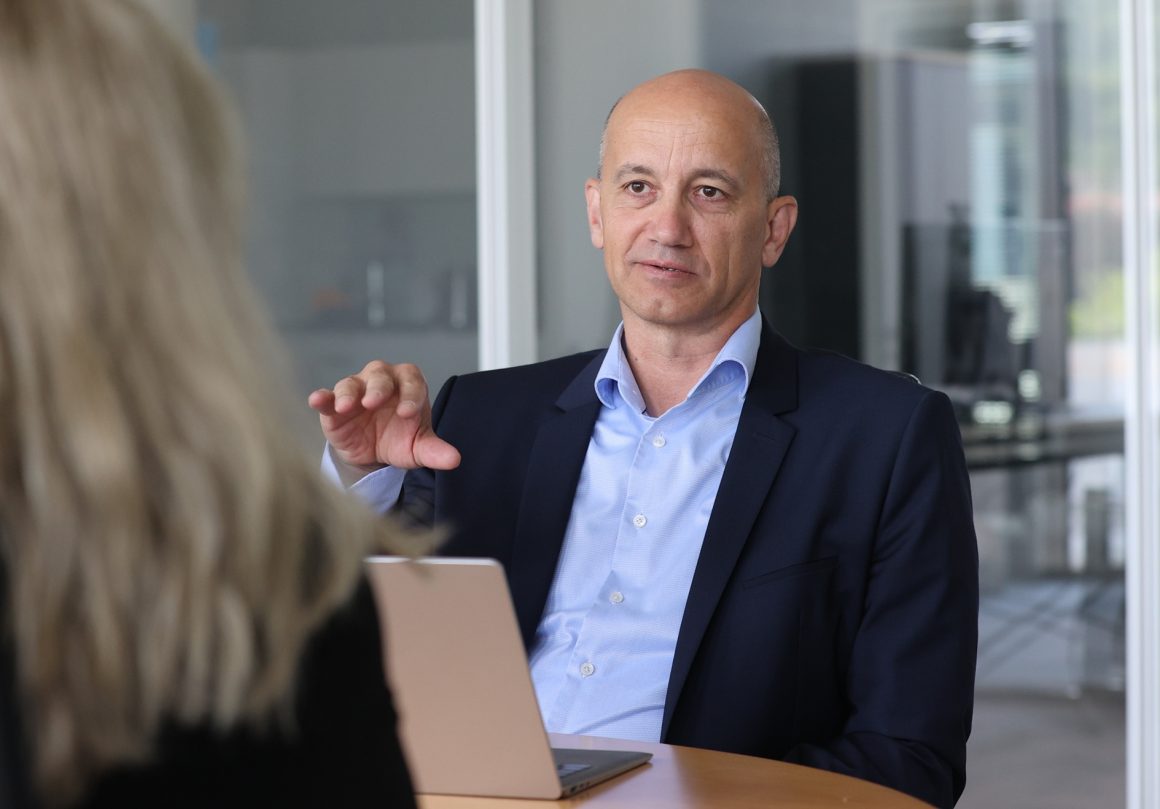
Wie resilient ist FSTHow resilient is FST and what can we do to become even more resilient?
Resilience is a great keyword. It stands for how well we can hold our own, how robust we are as a company. First and foremost, resilience has a lot to do with our employees – the management board and leadership across our divisions and corporate functions place a high level of trust in them.
Adaptability – the willingness to embrace change – helps strengthen the company’s resilience. We have already proven that we adapt to changing situations and market dynamics while we proactively prepare for future developments. Furthermore, we are a very solid company financially and our broad positioning in very diverse market areas is another key factor in our strong resilience.
Overall, I think that our highly motivated employees, the success of our existing business and the outlook for new products all play a major role in making us more resilient. There may be regional shifts at the moment and the transition to electromobility is creating some uncertainty. But we are seeing light at the end of the tunnel, especially in general industry markets. We are also making progress with digitalization that boosts our resilience. Sometimes it helps to simply do things differently than before, not to stay in our comfort zone but to constantly question whether what we are doing is the right thing.
Speaking of the global economy: What is your assessment of the current macroeconomic situation and what impact do you expect on the sealing business?
We are broadly diversified and represented in all industries, which gives us a very strong foundation. Of course, some segments are experiencing a dip at the moment, but others are already growing again. As I mentioned, we are seeing a slight uptick in order volumes in general industry.
Some of the European mechanical engineering is migrating to India and China. This means that we will have to accept a decline in exports from Europe to other regions of the world. So it is all the more important that we not only manufacture in all regions worldwide but also develop new products there. Customers all over the world expect fast response times from us. We are faced with different regional requirements that we can no longer fulfill from Europe in the future.
Looking at the automotive sector, there is a continuing transformation from internal combustion engines to hybrids or battery-electric vehicles. The scope and time frame of that transition varies by region. But the change is underway and we are well prepared with our products.
Hybrid vehicles are especially promising for us and a real accelerator, as they ultimately combine both drive types: a combustion engine and an electric motor. We supply components for both. This is an excellent bridge technology for us until the transformation is complete.
What strategies are you pursuing to keep our company competitive in a volatile global market?
In general, it is important to maintain a balance in the regions. Wherever we generate sales, we must also develop and manufacture products. We have been manufacturing with a “local for local” approach for many years. We produce where our customers produce. The new factor is that we will also develop much more locally in the future, so that we can bring products to market faster and be near the customer. This is how we put the customer first.
How would you assess current economic developments in countries like China and India? What opportunities do you see there for FST?
We are currently growing in India, we are growing in China. If we develop and manufacture more independently on site, we can accelerate this even more. So far, we have developed in Europe and the U.S. and then transferred our production to the global regions where our customers are located. But now there are many large customers in India and China who are global players themselves and producing in Europe, for example.
In China, we have developed thermal management products for battery vehicles and already secured five series production orders. We don’t manufacture these components in Europe or North America. In turn, we share the product technologies with our colleagues worldwide, which means that the exchange works in all directions.
In the current strategy period, Southeast Asia ranks high on the priority list. How far have we progressed with our expansion efforts there?
Our focus is on expanding our service business in Southeast Asia. This is proving a little more challenging than we initially expected. The service market in Southeast Asia differs significantly from the regions we typically serve. As an example, take Corteco: For top-selling vehicles from Honda or Toyota, for example, spare parts are often supplied by our Japanese joint venture partner NOK, not by us. The potential for our customers such as Mercedes, BMW and Ford is much smaller in Southeast Asia. This makes it all the more difficult for us to get a foot in the door. But we are staying the course and seeing some promising early developments. We will reassess the situation at the end of the current strategy period in 2026.
Overall, we are growing in Southeast Asia. In our partner production in Batam, Indonesia, we now manufacture not only radial shaft seals but also diaphragms, for example.
Despite the challenging conditions, FST aims to keep growing. Which market segments and regions are you focusing on?
We already talked about China, India and Southeast Asia. Our customers are increasingly operating on a global scale, even beyond their traditional core regions.
In terms of market and product segments, we will mainly grow in marine applications and aviation. Hydrogen is also a high priority for us. We are looking at the entire hydrogen value chain – from production to storage, transport and application. Our incubators are picking up speed. The same is true for the service businesses at ISD and Corteco.
Which geopolitical risks do you see as particularly relevant for FST and how do you plan to counteract them?
I see a great danger in the dismantling of the international order that has developed over the past decades. A look at the history books clearly shows that isolationism has never brought sustainable progress to any country. Walls, borders and tariffs may at best have a short-term effect in order to avoid global competition. That is why our strategy remains unchanged: Thanks to our global footprint, we develop and produce locally for the respective market. We are hearing the same from our customers when it comes to tariffs. There is no doubt that the associated cost increases would affect us, just like other companies. Those cost increases are passed on to the respective customers. Of course, the discussions around national tariffs and international trade barriers are currently shaking up the global economy. All the massive and, above all, erratic changes make it hard to maintain an overview. Our SAP system is an excellent foundation for ensuring transparency. Above all else, our priority is to satisfy our customers and be exactly where they are. And we have to flexibly adjust to new circumstances, stay adaptive. We always have been and always will be.
In this context, it is also important that we let local employees take the lead in each region. Knowledge of the culture and language is enormously important. Local customers sometimes have specific needs that must be addressed. That is exactly what we can no longer do from Europe or North America, at least not at the necessary speed.
Will the upward trend in electromobility continue globally?

Yes, this trend will definitely continue. There is no way around it – at the latest when the purchase prices for electric vehicles catch up with or even undercut those for combustion engines. Operating costs for electric vehicles are already lower, so price arguments against battery-electric vehicles are increasingly irrelevant. This is particularly true in Europe, where most people drive less than 100 kilometers a day to work, which is easily within the range of modern electric vehicles.Apart from this, the charging infrastructure is expanding and improving continuously. Those who can charge at home have an even greater advantage.
Electromobility will develop regionally at different levels of expansion. It has already come a long way in China, where hybrids are now gaining popularity as well, as commuting distances are getting longer. The trend towards electromobility will also continue in the U.S., although possibly at a slower pace. As a company, we would like politicians to set a globally unified date for finally phasing out internal combustion engines. Otherwise it will be very difficult to plan appropriately.
In Europe, we are currently not in the lead in battery development. But we are working hard to catch up. Products like our battery cell caps, which we manufacture in Pinerolo, show us that we’re making progress.
What do new products mean for our manufacturing technologies? In Pinerolo, for example, we used to produce valve stem seals and now we also make cell caps. Does that require new equipment?
Yes, we actually need different equipment for that. We started in Pinerolo with a small pilot installation. Now we are building on this, because the first customer orders have arrived. The new systems being installed in Italy are modular. The advantage: If market conditions change, we can also manufacture other products. Incidentally, these investments in Pinerolo are another strong example of our commitment to processes and technologies.
There has been a lot of talk about incubators in recent years, but what is happening with our existing business?
In view of the transformation and new drive technologies, the incubators are good and important. Without question, they are making a meaningful contribution to securing the company’s future. But that doesn’t mean that we no longer invest in products for other sectors! The individual developments may seem less spectacular than busbars or thermal barriers, for example – more evolution than revolution. Still, products from our existing portfolio are also being used in new applications, such as in electrolyzers, offshore wind turbines or agriculture, just to name a few. We have to keep in mind that each and every one of us comes into contact with our very different products every day. Whether it’s brushing your teeth in the morning, being on a plane, in a car, on a bike, using an automatic coffee maker, sitting in a dentist’s chair or in a farm tractor: Our seals are essential. If they were to suddenly go on strike, the world might keep turning, but a lot of things would stop working.
What is our global market position in the field of renewable energy?
I believe we are in an excellent position here as well. Take hydrogen, for example: Initially, we focused on electrolyzers – the production of hydrogen. We have expanded that view to consider the full value chain, from generation to storage, transport and application. There is great potential everywhere that we want to leverage. The largest share of FST’s hydrogen business will come from gaskets. With our materials and engineering expertise, we are very well equipped for the different types of electrolyzers. But we still need to grow in India and China in this area. China is the leader in alkaline electrolysis technology (ALK), while Europe is focusing mainly on proton exchange membrane (PEM) electrolysis so far. If the world wants to achieve its sustainability goals, all roads lead to hydrogen. Electrolysis is one of the ways to generate it.
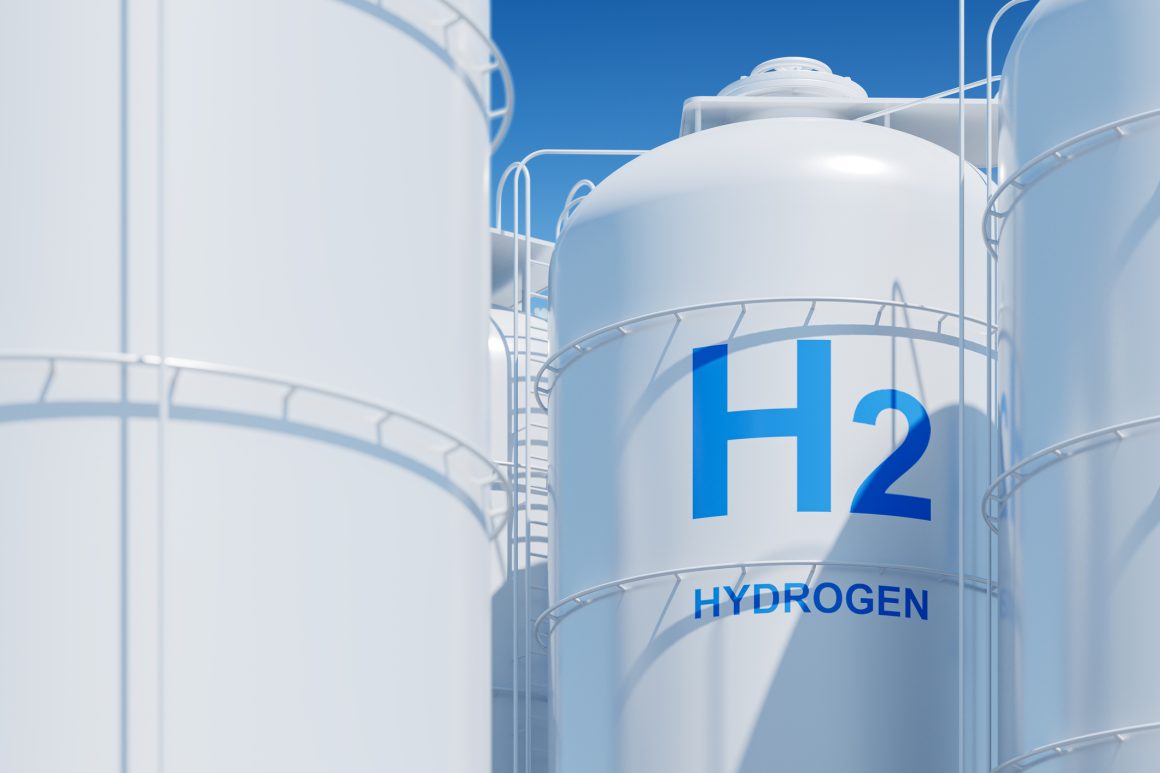
What are your expectations for the new U.S. President and his energy policy? What impact could political decisions have on our business strategy in the U.S.?
There are also energy clusters in the U.S. But this is not the main focus of politics at the moment. For us, this means that we can now concentrate more intensively on Europe and China until the relevant technologies come back into focus in the U.S. In addition, many of our customer contracts in North America are long-term agreements, so we don’t expect major changes over the next three and a half years. What happens after that remains to be seen.
From your perspective, would a strategic regional split make sense – would we focus in Europe on “green” components like hydrogen, wind, and solar, and in the U.S. on nuclear energy products?
I don’t see that considering such a strategic split would make much sense. The market will sort it out. From our site in Tillsonburg, Canada, we currently only supply parts used to service existing nuclear power plants anyway.
In Europe, PEM and alkaline electrolyzers will likely gain further momentum. We have to supply the appropriate seals for this. At the same time, we are looking far beyond Europe and the U.S. India, for example, is making great strides with hydrogen and wants to further develop H2-powered combustion engines. This is not a major topic in Europe or America. What matters for us is to develop and produce what is needed in each respective region. Here we benefit tremendously from our strong global network and our manufacturing footprint around the world.
Given the ongoing economic challenges, declining order volumes and high sales and administrative overheads (SG&A), FST has introduced measures worldwide to strengthen competitiveness. What are these measures?
Global crises, delays in the transformation and reduced regional investments have led to a drop in order intakes – especially from the automotive industry. An analysis of our sales, general and administrative overheads, the so-called SG&A costs, showed that our costs are significantly higher than those of our direct competitors. There is a three percent gap to our closest market competitor. So we definitely have to act if we don’t want to lose market share. In 2024, we managed to reduce our SG&A percentage by one point through cost-cutting measures. We are currently reviewing and optimizing our processes, rethinking what we should stop doing or do differently and how we can make even better use of digitalization.
In 2024, FST launched new initiatives to improve Operational Excellence even further. Where do we currently stand?
Operational Excellence means aiming for improvements and greater efficiency across the board. This requires better-structured and networked data to make progress in digitalization. And sometimes we have to question the things we do and perhaps simply stop doing them. In any case, I am pleased to see that we have become more productive, despite declining sales figures. Although the year was off to a difficult start, we are well on track for 2025, even if we haven’t reached our target yet. In recent years, we have invested between €25 and €30 million in automation projects to boost efficiency. These investments should be reflected in the results.
FST has set ambitious sustainability goals. In view of the economic and political challenges, do those goals still stand?
Yes, our targets still apply; we aim to be climate-neutral by 2045. In 2024, we were able to achieve all the interim goals we had set. We are also on the right track in 2025. To reduce our environmental footprint, our focus for the medium term is now on modernizing heating systems at our plants. We are taking a sensible step-by-step approach. This means that we will not replace relatively new heating systems just because they run on gas or oil. There is still enough time to meet our goals by 2045. We are exploring both geothermal energy and heat pumps. We already work with heat recovery from our production processes anyway. Heat recovery is already a firm requirement for all new systems that we purchase. Our new raw mixing plant being planned in Weinheim will be climate-neutral.
What is FST doing to draw talent and be an attractive employer?

I believe that FST is already an attractive employer. We offer our employees a high degree of responsibility and give them significant freedom to shape their areas of work. We provide continuous training to our employees, our training methods have become more flexible, and we offer a wide range of content. Employees can advance not only vertically but also horizontally. This means that they deepen their specialist knowledge and pursue an expert career path but remain in their current function without taking on a management position.
What I’ve experienced in my nearly 29 years at Freudenberg and what I want to preserve and encourage is our openness to new ideas. The respectful way we treat each other, especially when giving honest feedback. I think that listening to others and accepting that other employees with different experiences and views have different approaches is what makes a company attractive. Recently, a new employee who brought 20 years of professional experience to the job told me that he had never seen such openness to new ideas in his previous positions at other companies. Of course I am delighted by this feedback. Can we do things better? Yes, definitely, and we are working on it. Subjectively, people may perceive things differently, but our low turnover rate speaks for itself.
Our talent management process is very structured. At the same time, employees share responsibility by maintaining and regularly updating their personal profiles in Workday. I realize that dealing with our system is time-consuming. I also realize not everyone agrees that the sometimes considerable effort is worthwhile. A structured feedback process is extremely valuable for employee management. A cross-business talent management system like Workday continues to offer many benefits to both employees and the company. It enables employees to showcase their own strengths and network with colleagues across Freudenberg, which fosters the exchange of ideas and information. And it creates transparency across the entire organization. Can that increase efficiency? Certainly!
FST has initiated many Diversity & Inclusion (D&I) measures in recent years. What did these achieve?
We often discuss this topic at the management level and with our executives. It is also brought up regularly during site visits. I think even the fact that people are talking openly is an improvement. Once problems are out in the open, that alone makes a big difference. D&I representatives are available at each site because we want to offer employees a local point of contact. It is important to us that all employees can turn to a trustworthy person openly and without fear.
It is difficult to make the success measurable. As a company, we benefit from the diversity of our employees. Among other things, diversity stands for different perspectives and many-faceted ideas. I think it would be a shame if people at Freudenberg felt unable to open up and were afraid to contribute their thoughts because of their gender, age, or sexual orientation. That must not happen and I believe we are moving in the right direction.

